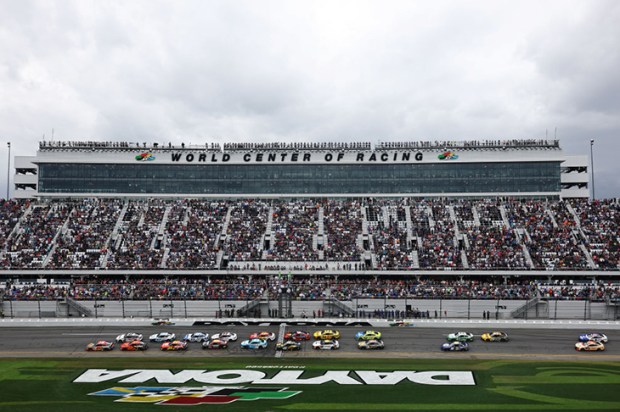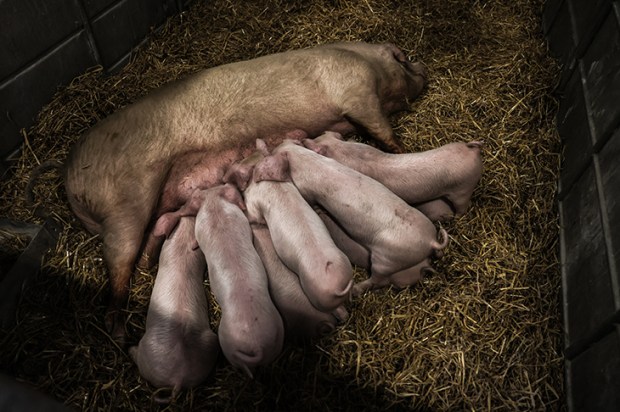It was a turning point. And there are significant implications for next year’s federal election, especially in Western Australia. On 9 September, at its annual parliamentary dinner, the Minerals Council of Australia (MCA) rediscovered its backbone (albeit with one slightly slipped disc). And a principled Peter Dutton tacked the Coalition’s flag to the MCA’s belated, but nevertheless welcome, declaration of war on an increasingly anti-mining Albanese Labor government – its latest manifestation being an economically destructive pro-union industrial relations assault on mining, in particular, and business in general. All that a caucus-dominated Prime Minister Albanese could manage in response to the MCA’s vocal volleys was to plead weakly with the mining industry not to ‘abandon co-operation for conflict’ nor to ‘let points of disagreement disrupt the path ahead’.
That Albanese’s soft-soap won’t wash with the miners was demonstrated in MCA CEO Tania Constable’s confrontational after-dinner speech to an audience that included the Prime Minister along with all the leading federal political players (and feather-dusters, like your correspondent). The event was sponsored by mining heavyweights Rio Tinto and Glencore – and surprisingly for those miners it has abandoned for environmental, ‘purity’, the ANZ bank. ‘We don’t want conflict,’ said Constable. But under the Albanese government ‘conflict has been brought upon us’, creating a ‘risk of undermining a sector that contributed $74 billion in company taxes and royalties in 2022-23’ and represents 10 per cent of national GDP.
The straw that broke the camel’s back is the government’s pursuit of industrial relations laws that MCA claims ‘have brought conflict to every workplace… it is a deliberate design feature’. These ‘reckless’ workplace laws (also in the firing line of the Business Council of Australia, but part of the Labor left’s union-dictated ‘Holy Writ’ that Albanese has no option but to implement) are on top of the long list of specific governmental assaults on mining. Particularly, says Constable, the ‘waves of restrictive policy interventions, including complex regulatory changes and the looming threat of “arbitrary” environmental approvals under the Nature Positive Plan…. Each new regulation, each new tax, additional layer of complexity, and arbitrary decision makes it harder for us to compete against competitors with no such constraints’. And then there are state government ‘royalty raids’ and (government-generated) high energy costs.
The governmental responses to this fierce attack, particularly through Albanese’s Resources Minister Madeleine King (who has in the past been seen as mining’s champion in an overwhelmingly hostile government) have avoided publicly taking on any of the mining industry’s major concerns. However, in King’s speech to the conference she effectively acknowledged having received some strong private ‘advice’ by thanking MCA members for ‘bringing me up to speed on some aspects of the industry I needed to learn more about and I’m grateful for the thoughtful and productive working relationship’. But while conceding that, ‘We all need to work harder to unlock mining investment’ King preferred to tell the disgruntled miners what a wonderful job she and her government were doing. ‘No government in recent memory has put the resources industry at the centre of its policy making in the way that the [Albanese] Government has… putting the critical minerals and rare earths industry at the heart of its policy making through the Future Made in Australia plan under which the government committed $17.6 billion to the Critical Minerals Production Tax Incentive.’
While this tightly focused response to the demand for critical minerals emerging from the renewables boom may justify Albanese’s claim that, ‘The road to net zero runs through [this relatively small part of] the Australian resources industry’, for the great bulk of resources, this government’s road to net zero runs over them; they are potential road-kill, like nickel, priced out of the market. Certainly, King’s comments cut no ice with the MCA’s Tania Constable who effectively dismissed Labor’s offer of tax production credits and its pro-mining rhetoric by asserting that, ‘All the incentives in the world and choruses of support wouldn’t matter’ if basic policy settings were not right. And they’re not. So not only has the MCA decided it has had enough, but the nature of King’ strong attack on BHP for daring to oppose the government’s industrial relations assault on mining represents a crossing of the Rubicon. As opposition leader Peter Dutton told the miners, the Coalition is your best friend.
With Albanese between a rock and a hard place on mining, his good cop/bad cop combination of pro-mining Resources Minister Madeleine King and pro-environment Tania Plibersek can no longer get away, as it has for more than two years, with this façade of appearing to satisfy constituencies that are in direct conflict – particularly within the government itself, let alone in key electorates (including those under a Green threat) on which the government’s survival depends.
Bad cop Tania Plibersek is reinforcing her anti-mining image with her threatened Environment Protection Australia legislation that would be responsible for environmental compliance and enforcement, a major problem for the mining industry that the Coalition is committed to oppose on principle. But this is where the MCA’s backbone slipped a disc; as the nature of the EPA would depend on an anti-mining automatic ‘environment trigger’ that the Greens demand as the price for its passing the Senate, the MCA (unsuccessfully) lobbied the Coalition to support a watered-down (but still very onerous) version in order to avoid the risk of a deadly Green one. The Dutton opposition’s backbone remained firm; it would not support damaging legislation simply because it was ‘less worse’ than the alternative. In any event, no matter what deals Plibersek has sought with the Greens, Albanese recognises that such a deal would destroy his economic credibility and undermine his chances in the next election of holding the seats in the mining state of Western Australia that won him government in 2022; the Bill is in limbo.
But while Plibersek did not directly mention, in her MCA speech, her bad-cop role in the McPhillamys gold mine fiasco, she did dig an even deeper credibility hole in dealing with the underlying issue of which Aboriginals have the say on cultural heritage matters. In McPhillamys she had controversially and unapologetically blocked (‘Hard decisions are part of the job – and I won’t shy away from them’, she told the MCA) after all other official approvals had been granted. This was in response to a request from a questionable rival Aboriginal group to overrule the local Aboriginal Land Council which had no objection to the proposed mine development. Plibersek tested the patience of her audience by telling them that the government would ‘not be rushed’ and would ‘take its time’ to fix this problem. ‘As you all know, the best way to ensure cultural heritage is protected is to engage early with the right people. But for that to happen, business needs to know who they need to consult….That’s what the First Nations Engagement Standard under our new laws will need to do – provide certainty about requirements and certainty about who to talk to.’ That is, when she eventually gets around to it. But it’s only those polluting, heritage-damaging exploiters of our natural resources (whose activities help fund our schools and hospitals) whose multi-million dollar projects remain at risk of arbitrary cancellation. So why the fuss?
Got something to add? Join the discussion and comment below.
You might disagree with half of it, but you’ll enjoy reading all of it. Try your first month for free, then just $2 a week for the remainder of your first year.













